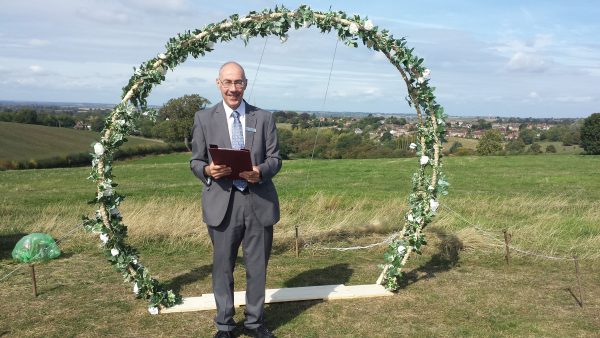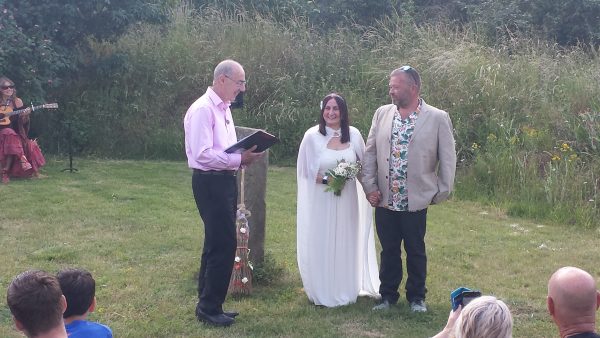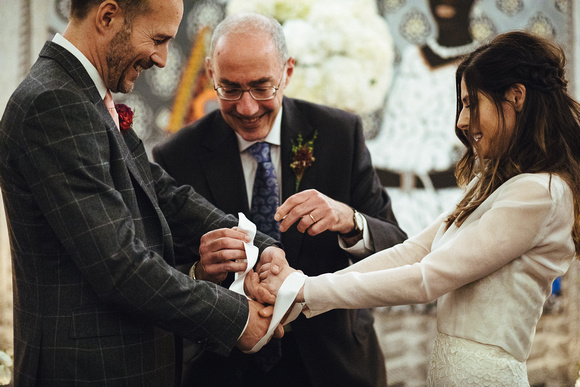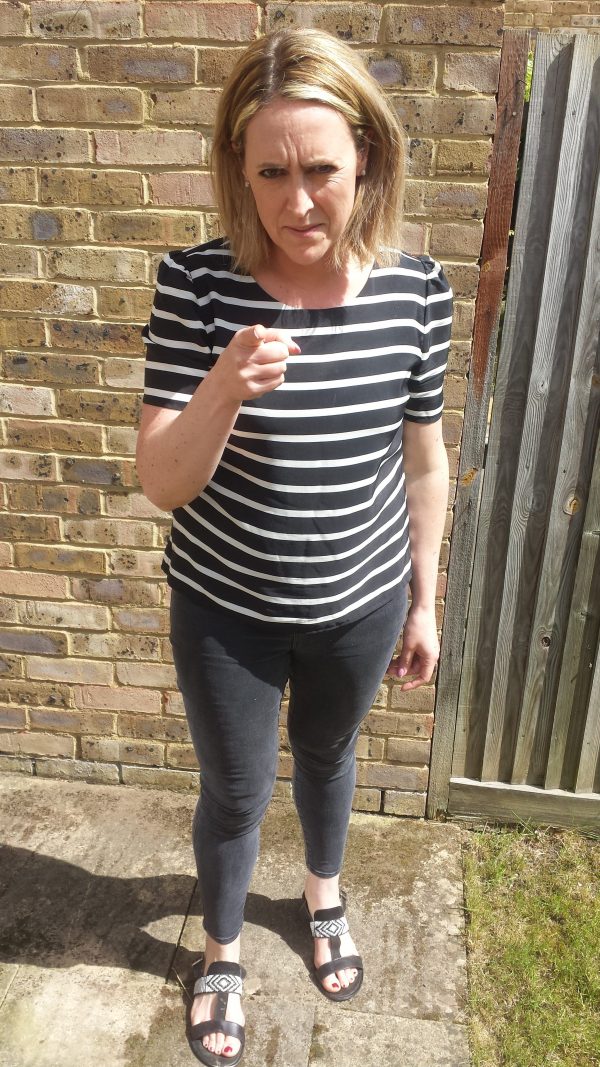
by Michael | Sep 16, 2019 | Blog
I’m afraid I’m old enough to remember a Simon & Garfunkel single with that title. It was the ‘B’ side of “Bridge over Troubled Water” (1970). (Do you even know what a “’B side’” was?!) The duo had in mind a very different world then, and the song is actually quite pessimistic, but some truths hold good today.
Anybody
worth their salt should be aiming at customer satisfaction. Doesn’t matter what
industry or trade they’re in. That’s the bottom line, surely. Wouldn’t you
agree?
The minimum
Of course, it’s not always easy to achieve this. Things do go wrong, so you have to be able to respond appropriately. It’s essential to be willing to listen to the client’s grievance and to try and understand it. If you can put things right there and then, that’s got to be the best solution. Showing the client respect and empathy will normally appease them and a satisfactory resolution may actually enhance your reputation.
Sometimes
the client may seem to be “wrong”. (But isn’t the client “always right”,
actually?) Well, on occasion, the experienced supplier may be able to advise
what might not work, or what might be more effective. However, they should not
bludgeon their views on to the client. Nobody likes to be patronised, and even
the experienced professional can misjudge things.
My goal
I am not
alone in believing that a supplier should aim for “value added plus”. It’s not
just a question of satisfying the client, but of delighting them.
Shortly after conducting a recent wedding for a lovely couple, I received this e-mail:
Thank you for making the day such a
Wonderful experience for us, what you did for us was beyond brilliant and
exceeded all our expectations!
So what
should a supplier be doing, to deliver that “wow” factor?
What’s the Secret?
Of course,
there’s no magic formula – not least, because each profession and each supplier
is different. However, there are a few principles that will apply generally.
In my field,
I encourage and ask a lot of questions in our initial meeting or conversation.
The client may be nervous and needs to understand what I can offer. I certainly
need to understand what they actually want. On occasion, I need to scratch
beneath the surface.
If they don’t
really know what choices are available, it’s my job to explain this.
I aim to
ensure that my clients normally understand my process (eg sending them drafts
that they can change, if they want). That includes payment terms, Ts & Cs.,
and what I do – and do not – offer. It’s important to be transparent. If there might
be any extras, then I’ll be up-front about it.
I don’t want
the client to receive any unpleasant surprises. That includes on the day. I
ensure that they approve beforehand every word that I am going to utter at the
ceremony.
On occasion, there might be a lot of time between agreeing the ceremony and the big day itself. Keeping in contact – even irregularly – gives peace of mind. It can also serve as a nudge if the client still has something to do (eg write their own vows!).
It’s also
important to be accessible, patient and helpful throughout the process.
On the day, I always try to arrive in very good time, check everything carefully and do what I have to do calmly and without fuss. I shall have practised the ceremony, so I can expect to present it professionally and beautifully. I always remember that the event is all about my clients, not about me. I aim to keep them calm and happy.
If you want
to find out more about how I can deliver that “wow” factor, please give me a
call!

by Michael | Sep 2, 2019 | Blog
When I was training to become a civil celebrant, my group was asked why we had chosen this career path. I vividly remember one lady’s reason. When her father died, the family engaged a celebrant. He was so awful that she determined to study and strive for excellence in order to improve other families’ chances of hiring a decent celebrant.
I have heard one or two (but not many!) tales of incompetent celebrants, so I do believe that there are some out there. I did attend a funeral where the rabbi (just excusable, I think, because he is dyspraxic) regularly referred to the deceased by entirely the wrong name. Nonetheless, not good.
The problem
The fact remains that the training of celebrants is unregulated. You can obtain an NVQ nowadays (it didn’t exist when I trained), but many celebrants are trained by other celebrants. Standards, in truth, can vary.
Alternatively, but they are not cheap, Associations offer training, which does tend to be thorough and practical. The point is, though, that anybody can set themselves up as a celebrant.
So what can you do to ensure that, when you want a celebrant, you get a decent, professional one?
Funeral Celebrant
When it comes to funerals, most people go to a Funeral Director (FD). The FD will usually offer a full religious service (the Church) or secular (either Humanist or Civil Celebrant). They will normally have a panel of officiants and recommend somebody. You meet the officiant and decide whether or not to work with them.
Sometimes people choose a celebrant via the website. I myself have a funeral website, but I hardly do anything with it. In truth, it’s mainly for a desperate FD, who is looking for a last-minute replacement celebrant. I have also been found that way, though, by a member of the public.
Wedding Celebrant
A wedding celebrant is harder to choose bcause it’s largely down to you. As ever, it pays to do some research.
Ideally, you
will have seen a celebrant in action and liked what they do. Or you know
somebody who has seen them at work.
Failing that, you will probably find them from their website (looking at page 1 or 2 of Google). If you’re impressed (and testimonials are often worth studying, as are blogs), you should arrange to meet with or, at least, speak with them. Make appointments with two or three. Come prepared with questions, and you can compare your impressions of them afterwards.
What to look out for
Were they friendly? Could they answer your questions satisfactorily? Were they professional and reliable? Do they seem willing actually to listen to your ideas and input? Were they articulate? How about their presentation skills? Are they experienced? And, crucially, are they someone you would like to have beside you on the biggest day of your life?
Your budget needs to be respected, of course, but price should only come into it, after the above questions have been settled.
I may be a
tad biased, but I’d be happy to help, if you wanted to discuss this further!

by Michael | Aug 3, 2019 | Blog
Where you
hold your wedding is likely to be a vital question for you to resolve. You
surely want to be married in a place that you both love.
The obvious choices
It’s simple,
if you go down the full religious route. It’ll be your religious building.
It’s almost
as simple if you’re having a Register Office affair. You make an appointment to
attend the office, with two witnesses, and that can be it. (However, the
Registrars will come out to some venues – though at quite a price!)
There’s another choice
You don’t have to be bound by those two alternatives. You can opt for the civil celebrant route, and then it’s a different ball-game.
This doesn’t
negate the Registrars. You still have to get legally married first. That means
making an appointment before the ceremony (as above).
The
difference is that now you can also have your personalised ceremony – in the
venue of your dreams.
And that
means almost anywhere! It could be in your back garden or (with permission, of
course) in a field next to a canal, up the Shard, at Stonehenge, by the
seaside, in the Savoy Hotel, in a hot-air balloon … – well, you get the
picture!
Advice
If you’re
arranging the ceremony yourself, you’ll need a celebrant, and probably
suppliers such as florists, photographers, make-up artists, caterers, etc.
You may want
to hire a wedding planner. For the extra cost, you get peace of mind. Depending
on the package you agree, every detail can be organised and overseen for you.
Regardless, you
need to get permission/pay for the venue you may be using.
All this should be arranged well in advance – generally, at least a year ahead, as some of the suppliers get booked up quite early.
With all
suppliers, try and get first-hand reports from people who have used them. This
may be word-of-mouth or website testimonials, but speaking to them directly is
important. You can ask your questions and get a feel for the supplier’s
attitude.
Practicalities
Remember good
old health and safety – especially if you’re organising everything yourself. (No
trailing wires; ensure there are sufficient toilets; check signposting etc.
etc.)
The bottom
line is that you really can choose where (and how) to mark your big day. Of
course, if you need any advice on the ceremony, just contact your friendly neighbourhood
celebrant!

by Michael | Jul 15, 2019 | Blog
People often ask me if they can include something humorous in a ceremony. “What will people think?” they ask.
Of course,
the answer depends on what expectations and intentions they may have. What
effect are they looking for?
Initially, my response is “yes”. “Certainly”, if it’s a wedding and “with care”, if it’s a funeral.
The traditional response
How traditional do you want your ceremony to be? If that’s your chosen path, then don’t expect much hilarity from the full Church service.
I officiated at one (secular but traditional) high society wedding, where the family were very keen that all appearances were correct and that guests would have no grounds to find fault with any part of the service.
Actually, I wondered whether it would mean more to the guests to witness a moving, sincere ceremony, rather than a fabulous spectacle. And if it entertained a bit, thanks to a touch of humour, all the better!
An alternative approach
At my “usual” weddings, however, (often, part-religious or secular), there is scope for personalising the ceremony. Normally, I advocate including some “serious” elements but also a few lighter moments. The ring blessing and vows, say, could be earnest – but the vows might include some humorous promises (based on personal idiosyncrasies of one of the couple).
I like to put in the couple’s story, where possible. This frequently offers scope for humour.
Humour in funerals
As I have implied, humour is more likely to be expected – and accepted – at a celebratory event.
However, although funerals should offer the opportunity to grieve, I believe they should also be a celebration of life and therefore should not exclude well-placed and tasteful humour.
Ad-libbing requires great care. A funeral will almost never be the place to be controversial or crude.
The best place for humour is in the eulogy or personal tribute. If the deceased had a special saying, favourite joke or some unique characteristic, reference to that will be appreciated by most who knew them. I loved the lady, who would go ballistic whenever Philip Schofield appeared on TV. When I referred to this, everybody – especially, the family – recognised, appreciated and enjoyed it!
If that’s appropriate for the deceased, why not have it?!
There’s nothing – in theory – to stop you having a whale of a time at a funeral. Sometimes, everyone is encouraged to wear a particular football shirt, say, to mark the deceased’s passion. The tone of such a service is likely to be quite light!
I hope I’ve made it clear that the tone you desire for weddings or funerals is ultimately down to you. Discuss it with your celebrant, and you can have the ceremony that suits and keeps a smile on everybody’s face.
Photo: www.lyndseygoddard.com

by Michael | Jun 24, 2019 | Blog
Nobody
relishes being classed as a “bridezilla”, but there do seem to be a few around …!
As a civil celebrant of some seven years’ standing, I have experienced one or two in my time! However, I’m glad to say that they have been the exception, rather than the rule.
What is it?
A bridezilla
is basically somebody who is totally self-centred. They are only concerned with
their own aspirations and desires.
An example
I came across a fine one a few years ago.
I had received an enquiry about a wedding in Essex, which I was available to do. We needed a discovery conversation to see if we could work together.
The lady concerned chose a Skype call, and it was all set up. Unusually, she conducted it on her own. I wasn’t particularly enamoured of her, in truth, but brides are entitled to be demanding, and it looked like I would be able to offer what she wanted.
After a
while, I saw a man slinking around in the background, and I asked her if that
was her intended. Indeed, it was. So I asked her if she’d like to invite him to
be part of our conversation.
“Oh, no,” she responded, “He’ll do what I tell him. This is my wedding.”
I wasn’t impressed. Needless to say, there wasn’t any future in our collaboration!
A different example
One other
experience comes to mind. By contrast to the Essex wedding (if it ever took place!),
I was invited by the groom to come over to his office discuss how we might do the
wedding.
I seemingly ‘passed the interview’, as I was next invited to their home to meet the bride. Their home turned out to be in a close off London’s Bishop’s Avenue. (Some will now realise that we are talking serious money here.)
The groom was delightful; the bride rather unsmiling, although she was pleasant enough. It became clear that she had OCD tendencies! One thing that I did not expect was for her to record me reading aloud, and send the recording off to her parents for approval.
When I got the job, and I had written the final draft, I had to go over again for a rehearsal, where every detail was checked and refined. The bride was even more unsmiling this time!
I could understand that she wanted her society wedding to be perfect, but this was nothing compared with what I saw at the weekend of the wedding.
The day before, another rehearsal had been arranged, and we got through this, even though the bride was showing real signs of stress. She found fault with most things, and, when her groom was unwise enough to intervene in the interests of fairness, she turned on him quite viciously.
An hour or so before the ceremony, I was invited to their suite. The bride seemed to be at war with the world. Almost everybody was the recipient of her tongue (I got away with it quite lightly!), but the blame for everything was laid at the door of the groom.
She shouted at, and humiliated, him in front of make-up artists, florists, myself, and all and sundry. Certainly, had I been the groom, I would not have married her!
In the event, the day went smoothly and beautifully, and she was able to enjoy the event (and let others enjoy it too!).
Dealing with Bridezilla
Once again, I acknowledge that weddings are stressful for anybody. You want to make a great impression and have a fabulous day. You engage a team of people to collaborate, and depend on their skill and professionalism. Things can go wrong (although they may be resolved seamlessly), but don’t necessarily matter at all. (Except to a Bridezilla.)
I escaped the worst of the maelstrom by showing calmness and confidence. (Not to say I wasn’t nervous, though!) I didn’t interfere in what didn’t directly concern me, and had to let the bride blow her top as and when.
I do think it was a pity that the bridezilla probably spoiled the wedding for the groom (certainly, the run-up) by being so demanding and nasty. However, as far as I know, they are still married, so there is probably a happy ending to this story after all!
If you know
anybody who might like to work with a consummate professional for their big
ceremony, please send them my way. But think twice, if they’re a Bridezilla!





